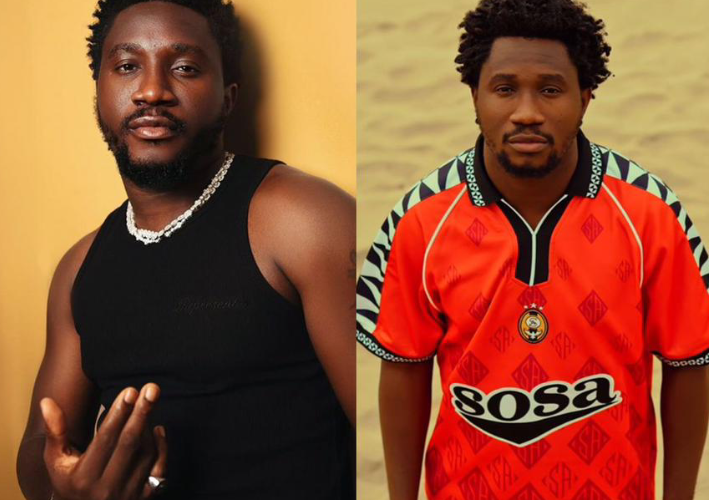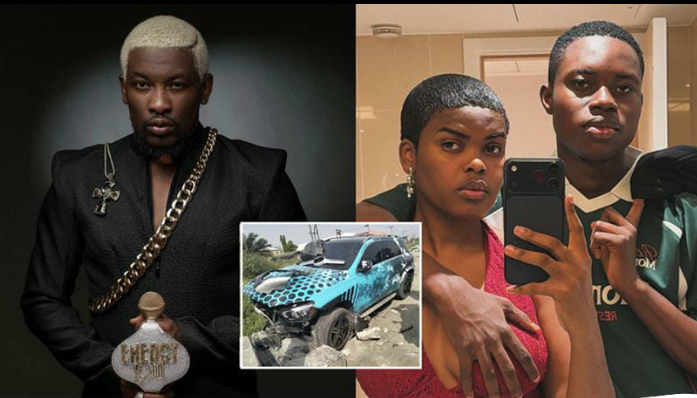
“Funny How You Talk Abroad but Go Cold at Home” — Nasboi Calls Out Nigerian Musicians for Ignoring Local Creators

Nigerian comedian, singer, and digital creator Nasboi has stirred a lively debate across social media after sharing a thought-provoking tweet about the contrasting ways Nigerian musicians treat interviews abroad versus how they interact with local creators at home. In his words: “It’s funny how our musicians grant random interviews abroad (road side interviews). But down here, them go dey form for creators. Lol.”
The short post, shared on X (formerly Twitter), quickly gained traction, resonating with many Nigerian content creators who have long complained about being snubbed or ignored by A-list artists when seeking interviews or collaborations. Nasboi’s statement captures what many see as a growing disconnect between Nigerian entertainers and the very online creators who helped push their brands in the early stages of their careers.
Across social media, several users echoed his sentiment. Many creators lamented how some of these same artists, who easily give “random roadside interviews” to foreign media abroad, suddenly become inaccessible once they return home. They appear selective, overly guarded, or uninterested in engaging with local content creators who operate outside the traditional media houses. The irony, as Nasboi pointed out, lies in the fact that these artists show humility and openness in foreign settings — sometimes answering questions from unknown vloggers — but act distant when approached by homegrown creators who understand their culture and audience better.
Industry observers say this behavior is rooted in image control and perception. For some Nigerian artists, interacting with local interviewers might feel less glamorous or “professional” than engaging with Western vloggers or journalists. The allure of international validation often drives them to be more approachable when abroad, especially since they are trying to appeal to new markets. Back home, however, they feel the need to maintain a sense of mystique, sometimes mistaking inaccessibility for prestige.
It also highlights a deeper issue — the undervaluing of Nigeria’s creative ecosystem. Local creators have become a vital part of entertainment storytelling in the digital age, providing the platforms, reactions, and viral moments that amplify artists’ work. Yet, many of these creators still struggle to get access, recognition, or collaboration opportunities from the very celebrities whose music they promote daily. Nasboi’s comment, though humorous on the surface, points to an imbalance that hurts both sides. When artists ignore their local storytellers, they lose touch with grassroots audiences who shape cultural perception in real time.
Social media users flooded Nasboi’s mentions with examples. Some cited how stars like Burna Boy or Rema have done spontaneous interviews with fans or vloggers in Europe and America, laughing and chatting freely, yet often dodge similar engagements at Nigerian events. Others argued that not all musicians behave that way, saying some artists genuinely prefer structured media appearances due to concerns about misrepresentation or sensationalism in local blogs. Still, the overwhelming response leaned toward agreement with Nasboi’s observation — that there’s a noticeable double standard when it comes to accessibility.
This conversation also ties into Nigeria’s broader creator economy. Over the past five years, content creation has exploded into a serious industry, with influencers, podcasters, street interviewers, and digital journalists redefining how stories are told. These creators are the new media, bridging the gap between celebrities and audiences in ways traditional TV never could. They bring the street pulse to digital screens, making entertainment feel authentic and relatable. For artists to treat these new-age storytellers as lesser platforms is not just unfair — it’s short-sighted. In an era where one viral clip can elevate a song globally, collaboration with creators should be seen as strategic partnership, not casual favor.
Nasboi’s post reignites that necessary conversation about mutual respect within the entertainment space. Artists need to recognise that fame is not built in isolation — it’s built through community, through fans, and through the creators who constantly document their journey. By forming barriers at home while embracing openness abroad, some risk alienating the audiences that made them stars in the first place.
As reactions continue to pour in, one truth stands clear: the Nigerian creative industry thrives on collaboration. Whether you’re a singer, comedian, or content creator, your relevance depends on how well you connect — not just with international media, but with the voices that reflect your reality on home soil. Nasboi’s tweet may have been brief, but its message echoes loudly: authenticity begins at home.


